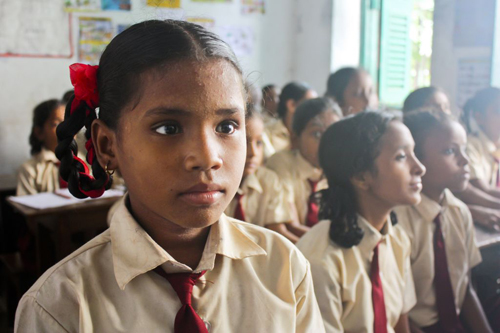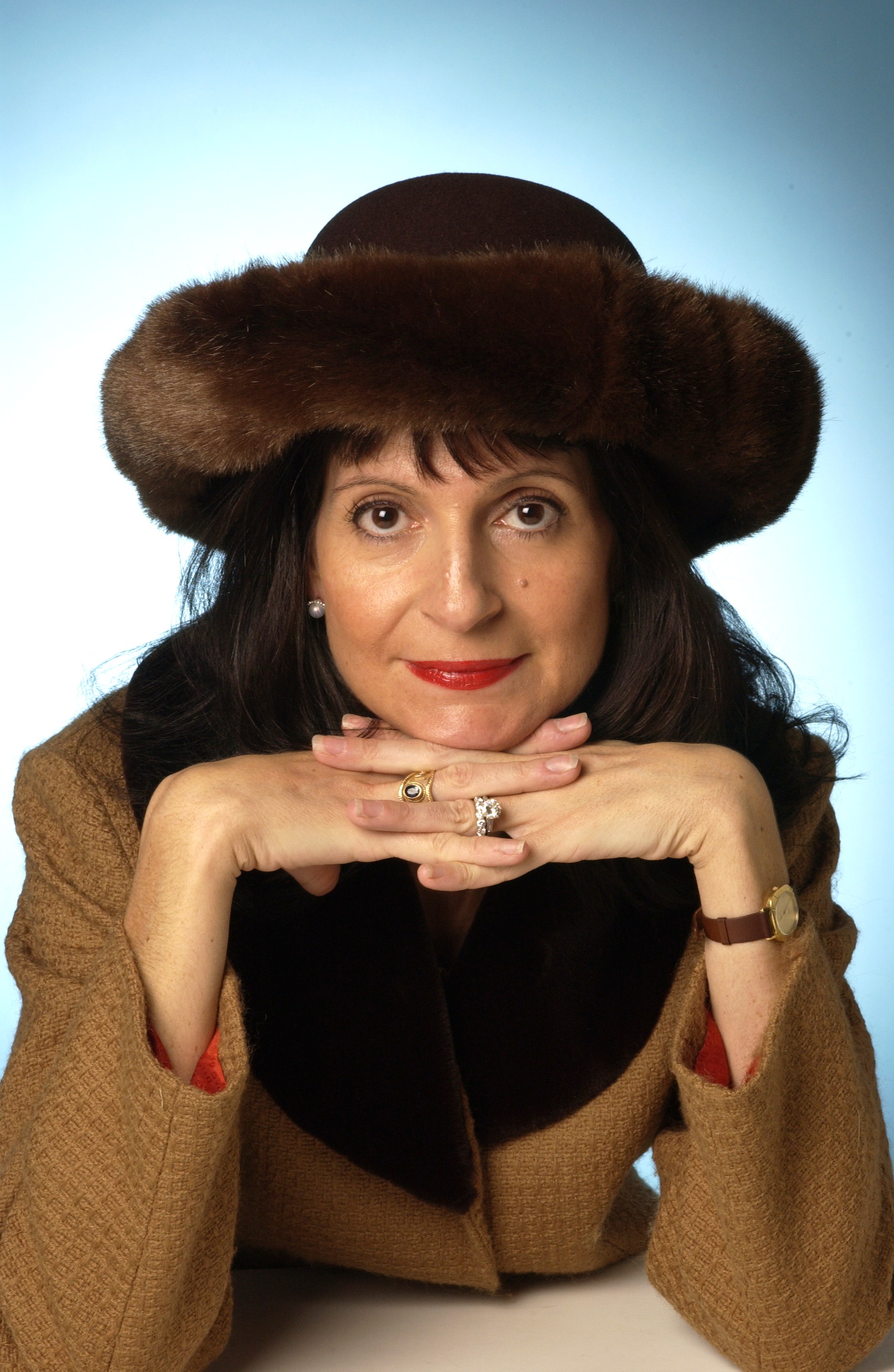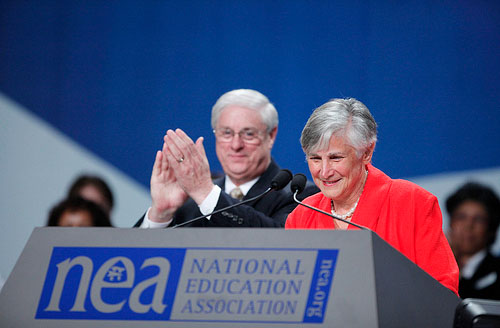What students want — and what world leaders can and must do better!
Mark this day with a white stone — July 12, 2013. The venue: The United Nations. The Event: Malala Yousafzai, the fearless education rights campaigner from Pakistan shot by extremists on her way to school, takes center stage to celebrate her birthday and together with her fellow student campaigners, leads us in a global discussion of the world’s major education issues. The birthday wish: That all diplomats in the audience use this celebration for renewal of their commitment and match their rhetoric for education reform with real actions in each of their own countries. All countries can and must do more to help the world’s children achieve a relevant, quality 21st century education. Let me share some of my reflections from listening to voices around the world on the diverse and contrasting education issues nations face today.
Education is the greatest armament in the battle on poverty, disease, brutality and prejudice. Providing education for children in the emerging markets is both vital and relatively cheap. So, starting today, what more can we do to get 31 million girls and 26 million boys into school and achieve the Millenium Development Goal to boost access to education worldwide?
Extremists tremble at the prospect of children with knowledge. The empowerment of students today is the single most potent solution to tomorrow’s peace. What more can Nigerian leaders do to end the torchings and brutal murders of exemplary school children by Boko Haram (name translates as “western education is sinful”), which has been blamed for killing more than 1600 victims since 2010?
If India enrolled 1 percent more girls in secondary school, their GDP would rise by $5.5 billion. Girls with eight years of education are four times less likely to be married as children. A child born to a literate mother is 50 percent more likely to survive past the age of five. A girl with an extra year of education can earn 20 percent more as an adult, and educated mothers are more than twice as likely to send their children to school. We understand how and why educating girls works thanks to the voices of nine remarkable girls from Peru, Haiti, Egypt, Sierra Leone, Afghanistan, Ethiopia, India, Nepal and Cambodia in Richard Robbins’ powerful film, Girl Rising. What more can their countries do to support them?
Chilean students cry out that free public education is a universal human right and is the most effective way to address the severe social inequalities in a country where the rich go to the best universities and the poor go to third class universities. What more can Chile’s leadership do to support an education system with deep divides along class lines (one of the world’s lowest levels of public funding for higher education, some of the longest degrees, no comprehensive system of student grants or subsidized loans)?
On the one hand, society says I must get an education. On the other, society isn’t going to pay for it if I cannot. Shouldn’t going to University depend on ability versus ability to pay? Around the world, students have joined forces in the face of surging costs in higher education and the lack of accessibility. They also seek the answer to this question, “Will the enormous investment in time and money I am being asked to make in my education pay off?” In the United States, the student loan debt is more than $1 trillion (60 percent of students must borrow to help cover costs according to the Chronicle of Higher Education), making it the highest form of personal debt in this country. In Great Britain, the National Campaign Against Fees and Cuts protests government’s plans for a market-driven higher education system, rising tuition fees and a growing number of students being priced out of obtaining a degree. In the past year, we have seen similar protests from dedicated student organizations in Quebec, New Zealand, Guatemala, Spain and Italy, to mention but a few. What more can the governments of these countries do to find solutions to student needs?
To the education leaders in the United Nations audience for Malala and her fellow students, I say: You need a game changer that will address the variety of big picture issues that today’s students face. You need to be more innovative in terms of finding solutions to what is becoming the world’s biggest problem. Around the world today, students are wide awake. They are many and they are united by one struggle — they want education to be accessible, affordable and relevant to their lives. They will continue to mobilize and you can be sure that on this issue, they are not going to back down.
In The Global Search for Education, join me and globally renowned thought leaders including Sir Michael Barber (UK), Dr. Michael Block (U.S.), Dr. Leon Botstein (U.S.), Professor Clay Christensen (U.S.), Dr. Linda Darling-Hammond (U.S.), Dr. Madhav Chavan (India), Professor Michael Fullan (Canada), Professor Howard Gardner (U.S.), Professor Andy Hargreaves (U.S.), Professor Yvonne Hellman (The Netherlands), Professor Kristin Helstad (Norway), Jean Hendrickson (U.S.), Professor Rose Hipkins (New Zealand), Professor Cornelia Hoogland (Canada), Honourable Jeff Johnson (Canada), Mme. Chantal Kaufmann (Belgium), Dr. Eija Kauppinen (Finland), State Secretary Tapio Kosunen (Finland), Professor Dominique Lafontaine (Belgium), Professor Hugh Lauder (UK), Professor Ben Levin (Canada), Lord Ken Macdonald (UK), Professor Barry McGaw (Australia), Shiv Nadar (India), Professor R. Natarajan (India), Dr. Pak Tee Ng (Singapore), Dr. Denise Pope (US), Sridhar Rajagopalan (India), Dr. Diane Ravitch (U.S.), Richard Wilson Riley (U.S.), Sir Ken Robinson (UK), Professor Pasi Sahlberg (Finland), Andreas Schleicher (PISA, OECD), Dr. Anthony Seldon (UK), Dr. David Shaffer (U.S.), Dr. Kirsten Sivesind (Norway), Chancellor Stephen Spahn (U.S.), Yves Theze (Lycee Francais U.S.), Professor Charles Ungerleider (Canada), Professor Tony Wagner (U.S.), Sir David Watson (UK), Professor Dylan Wiliam (UK), Dr. Mark Wormald (UK), Professor Theo Wubbels (The Netherlands), Professor Michael Young (UK), and Professor Minxuan Zhang (China) as they explore the big picture education questions that all nations face today. The Global Search for Education Community Page
C. M. Rubin is the author of two widely read online series for which she received a 2011 Upton Sinclair award, “The Global Search for Education” and “How Will We Read?” She is also the author of three bestselling books, including The Real Alice in Wonderland.





Recent Comments